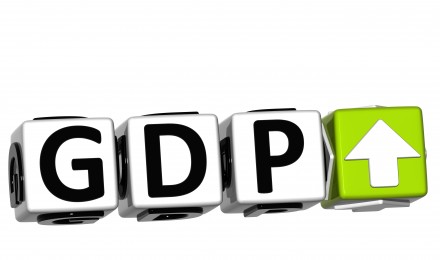Continuing information about the job market suggests a stronger economy is on the horizon for 2012. In the most recent U.S. Department of Labor release, initial jobless claims declined by 13,000 for the week of February 11, 2012 to a total of 348,000 initial jobless claims.
The initial jobless claims report collects data on the number of Americans who apply for unemployment benefits during a specific week. The recent decline follows the continuing decline in initial jobless claims since the most recent week marks the 10th time in the last 11 weeks that initial jobless claims have declined. Initial jobless claims can fluctuate for a variety of reasons, including reactions from the general public to specific types of jobs or layoffs. Looking at one week’s data may not prove to be a reliable indication of the health of the economy if taken into consideration by itself.
In addition to the week’s decline in initial jobless claims, the four-week average of initial jobless claims has also declined by 1,750. This four-week average provides a better indication of the job market since it is not as volatile a measure as a weekly statistic. Monthly payroll growth may also be up in addition to a decrease in continuing claims.
These pieces of data taken together all indicate an increase in the strength of the economy.
A healthy number of initial jobless claims, usually considered by economists to be fewer than 400,000, provides a positive influence on the economy. When more individuals are employed, consumers are more likely to feel confident in their potential to earn money and will be more likely to sift part of their earnings into the economy through consumer spending. This analysis is particularly true around the holidays, and even more so after the holidays as retailers promote increased savings and discounted products. Additionally, some businesses may need to clear out inventory to make way for new seasonal items, and they may attempt to entice consumer with better sales. When consumer spending is on the rise, stocks will increase in value as companies see increased profit margins. Investors will recognize the increase in consumer confidence and the availability of disposable income and will be more likely to invest money into new projects.
Although one particular week’s reporting of initial jobless claims is not enough to warrant a positive prospective of the economy, when taking together with other important factors, the recent report points to signs of a healthy economy.
Continuing information about the job market suggests a stronger economy is on the horizon for 2012. In the most recent U.S. Department of Labor release, initial jobless claims declined by 13,000 for the week of February 11, 2012 to a total of 348,000 initial jobless claims.
The initial jobless claims report collects data on the number of Americans who apply for unemployment benefits during a specific week. The recent decline follows the continuing decline in initial jobless claims since the most recent week marks the 10th time in the last 11 weeks that initial jobless claims have declined. Initial jobless claims can fluctuate for a variety of reasons, including reactions from the general public to specific types of jobs or layoffs. Looking at one week’s data may not prove to be a reliable indication of the health of the economy if taken into consideration by itself.
In addition to the week’s decline in initial jobless claims, the four-week average of initial jobless claims has also declined by 1,750. This four-week average provides a better indication of the job market since it is not as volatile a measure as a weekly statistic. Monthly payroll growth may also be up in addition to a decrease in continuing claims.
These pieces of data taken together all indicate an increase in the strength of the economy.
A healthy number of initial jobless claims, usually considered by economists to be fewer than 400,000, provides a positive influence on the economy. When more individuals are employed, consumers are more likely to feel confident in their potential to earn money and will be more likely to sift part of their earnings into the economy through consumer spending. This analysis is particularly true around the holidays, and even more so after the holidays as retailers promote increased savings and discounted products. Additionally, some businesses may need to clear out inventory to make way for new seasonal items, and they may attempt to entice consumer with better sales. When consumer spending is on the rise, stocks will increase in value as companies see increased profit margins. Investors will recognize the increase in consumer confidence and the availability of disposable income and will be more likely to invest money into new projects.
Although one particular week’s reporting of initial jobless claims is not enough to warrant a positive prospective of the economy, when taking together with other important factors, the recent report points to signs of a healthy economy.







